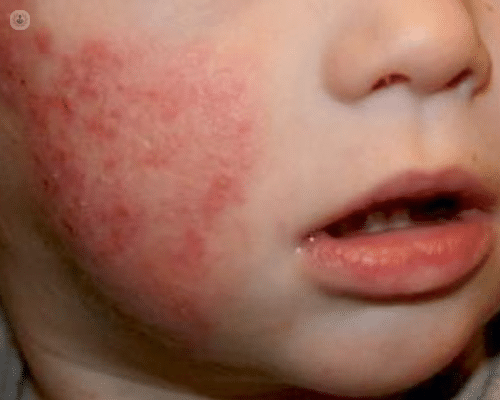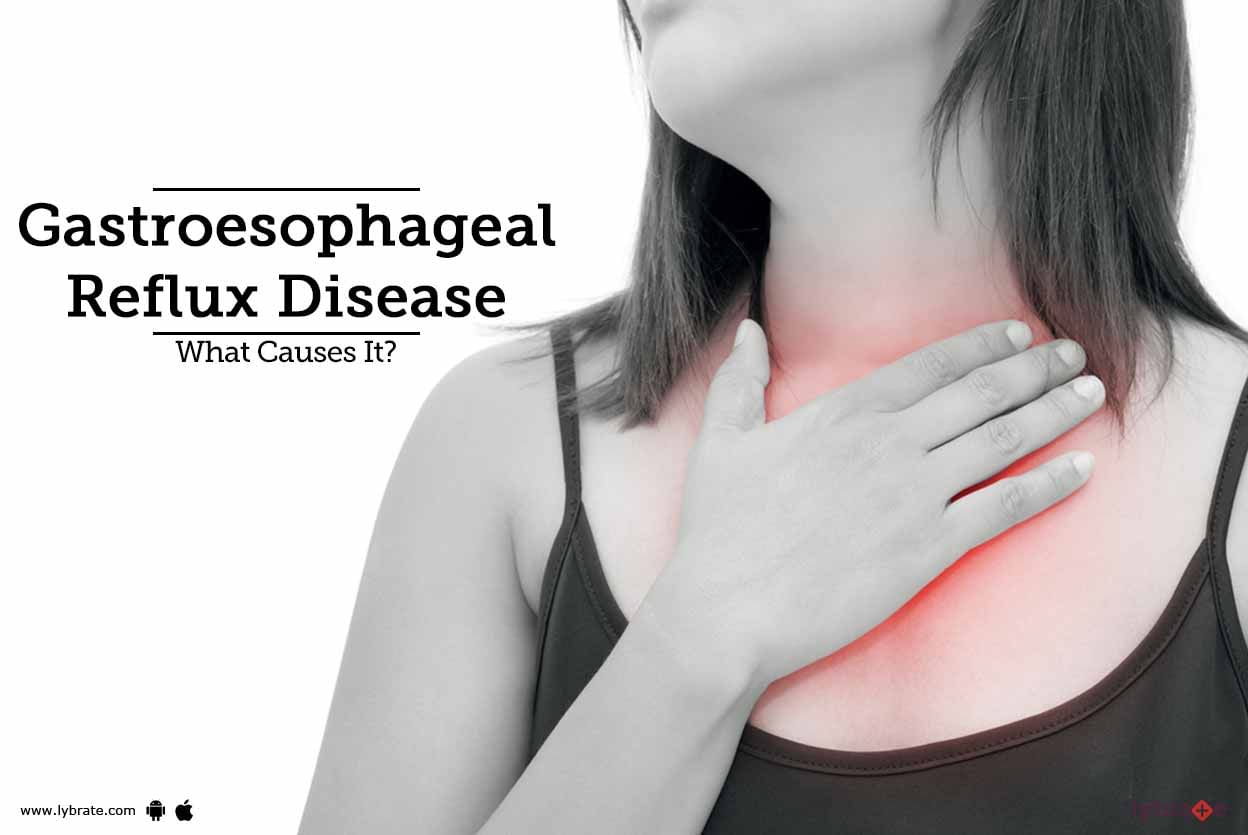Get the App
For Doctors
Login/Sign-up
About
Health Feed
AllQ&AsTips
Cimetidine Health Feed
Last Updated: 8 years ago• Featured Tip
Share
Bookmark
Report
MBBS, MS - General Surgery , DNB (Genera...read more
Gastroenterologist•Hyderabad
Gastroesophageal Reflux Disease (GERD) is a form of digestive disorder, which affects the lower oesophageal sphincters or the muscle ring present between the stomach and the food pipe. GERD incorporates the return of the contents of the stomach back to the oesophagus or food pipe. The functioning of the lower oesophageal sphincter is disrupted.
Causes
Hiatal hernia is a common cause of GERD. An unhealthy lifestyle and diet may also lead to GERD. Intake of an excess amount of ch...more
Causes
Hiatal hernia is a common cause of GERD. An unhealthy lifestyle and diet may also lead to GERD. Intake of an excess amount of ch...more
Last Updated: 6 years ago• Featured Tip
Share
Bookmark
Report
Treatment of Dermatitis
Homeopathic Treatment of Dermatitis
Acupuncture Treatment of Dermatitis
Psychotherapy Treatment of Dermatitis
Conventional / Allopathic Treatment of Dermatitis
Surgical Treatment of Dermatitis
Dietary & Herbal Treatment of Dermatitis
Other Treatment of Dermatitis
What is Dermatitis
Symptoms of Dermatitis
Causes of Dermatitis
Risk factors of Dermatitis
Complications of Dermatitis
Lab Investigations and Diagnosis of D...more
Homeopathic Treatment of Dermatitis
Acupuncture Treatment of Dermatitis
Psychotherapy Treatment of Dermatitis
Conventional / Allopathic Treatment of Dermatitis
Surgical Treatment of Dermatitis
Dietary & Herbal Treatment of Dermatitis
Other Treatment of Dermatitis
What is Dermatitis
Symptoms of Dermatitis
Causes of Dermatitis
Risk factors of Dermatitis
Complications of Dermatitis
Lab Investigations and Diagnosis of D...more
1264 people found this helpful
Last Updated: 6 years ago• Featured Tip
Share
Bookmark
Report
Gastroesophageal reflux disease (GERD) is also called as acid reflux. It is a long-term digestive disorder that affects the lower esophageal sphincter, the ring of muscle between the esophagus and stomach which causes the stomach contents to come back up into the esophagus resulting in either symptoms or complications. Gastroesophageal reflux disease is mild acid reflux that occurs at least twice a week or moderate-to-severe acid reflux which occurs at least once a week.
Epidemiologymore
Epidemiology
Last Updated: 5 years ago• Featured Tip
Share
Bookmark
Report
Gastroesophageal reflux disease (GERD) is also called as acid reflux. It is a long-term digestive disorder that affects the lower esophageal sphincter, the ring of muscle between the esophagus and stomach which causes the stomach contents to come back up into the esophagus resulting in either symptoms or complications. Gastroesophageal reflux disease is mild acid reflux that occurs at least twice a week or moderate-to-severe acid reflux which occurs at least once a week.
Epidemiologymore
Epidemiology
Last Updated: 6 years ago• Featured Tip
Share
Bookmark
Report
Gastroesophageal reflux disease (GERD) is also called as acid reflux. It is a long-term digestive disorder that affects the lower esophageal sphincter, the ring of muscle between the esophagus and stomach which causes the stomach contents to come back up into the esophagus resulting in either symptoms or complications. Gastroesophageal reflux disease is mild acid reflux that occurs at least twice a week or moderate-to-severe acid reflux which occurs at least once a week.
Epidemiologymore
Epidemiology
Last Updated: 5 years ago• Featured Tip
Share
Bookmark
Report
Gastroesophageal reflux disease (GERD) is also called as acid reflux. It is a long-term digestive disorder that affects the lower esophageal sphincter, the ring of muscle between the esophagus and stomach which causes the stomach contents to come back up into the esophagus resulting in either symptoms or complications. Gastroesophageal reflux disease is mild acid reflux that occurs at least twice a week or moderate-to-severe acid reflux which occurs at least once a week.
Epidemiologymore
Epidemiology
Last Updated: 7 years ago• Featured Tip
Share
Bookmark
Report
Gastroesophageal reflux disease (GERD) is also called as acid reflux. It is a long-term digestive disorder that affects the lower esophageal sphincter, the ring of muscle between the esophagus and stomach which causes the stomach contents to come back up into the esophagus resulting in either symptoms or complications. Gastroesophageal reflux disease is mild acid reflux that occurs at least twice a week or moderate-to-severe acid reflux which occurs at least once a week.
Epidemiologymore
Epidemiology
Last Updated: 7 years ago• Featured Tip
Share
Bookmark
Report
Gastroesophageal reflux disease (GERD) is also called as acid reflux. It is a long-term digestive disorder that affects the lower esophageal sphincter, the ring of muscle between the esophagus and stomach which causes the stomach contents to come back up into the esophagus resulting in either symptoms or complications. Gastroesophageal reflux disease is mild acid reflux that occurs at least twice a week or moderate-to-severe acid reflux which occurs at least once a week.
Epidemiologymore
Epidemiology
Last Updated: 7 years ago• Featured Tip
Share
Bookmark
Report
GERD or acid reflux is caused by the regurgitation of acidic liquid stomach contents back up into the esophagus. It is a long-term condition where stomach contents come back upwards from the gastro-intestinal tract resulting in either symptoms or complications. It is a commonly occurring digestion condition. A burning sensation in the chest is usually caused by acid reflux which radiates up from the stomach to the mid-chest or throat. This condition is also known as the heartburn. A sour taste i...more
Asked for female, 22 years old from Chennai
Share
Bookmark
Report
Dandruff may be the result of a dry scalp, or a skin condition called seborrheic dermatitis. It could also be caused by eczema, psoriasis, or, very commonly, an overgrowth of a yeast like fungus called malassezia. Drugstore remedies might include shampoos with zinc pyrithione, which targets fungus and bacteria; ketoconazole, which also fights fungus; coal tar and selenium sulphide, which slow the growth and die-off of skin cells on your scalp; and salicylic acid. 1) Aspirin contains the same act...more
1855 people found this helpful
Ask a free question
Get FREE multiple opinions from Doctors
posted anonymously





















